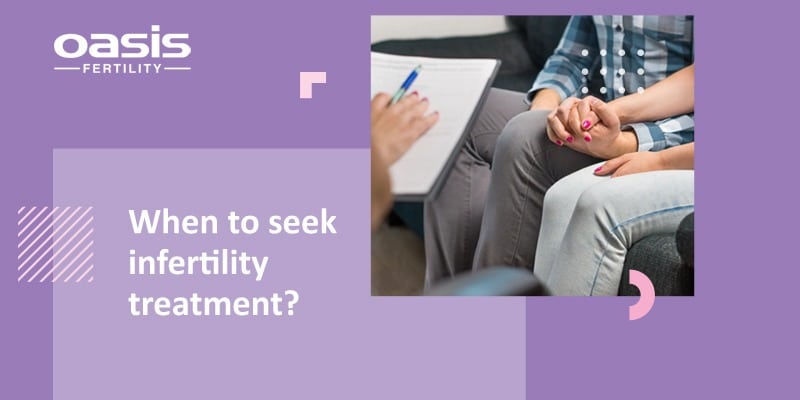When to seek infertility treatment?
There is nothing like the anticipation and longing that you feel when you are trying for a baby. But when you don’t get pregnant soon enough, you may begin to wonder if you and your partner are having infertility problems. If you have just started to try for a baby, you may not have to rush to see a fertility expert just yet. But waiting too long may decrease your chances of having a baby too. Here is a list of guidelines to help you determine if it is the right time for you to see your doctor for your infertility issues.
-
- Based on the time you have been trying to get pregnant
A couple who has been trying to have a baby unsuccessfully for over a year may be infertile. If you have been trying to get pregnant for more than a year without results, you must consider visiting a fertility expert.
-
- Based on age
Age is an important factor when it comes to predicting fertility. Studies have proven that both men and women experience decreased fertility with advancing age.
If you are below 35 years of age – wait a year
It is normal for a young healthy couple to take up to 12 months to get pregnant. Couples who are in their late 20s and early 30s are advised to give up contraceptive methods for a year when trying to conceive. If they are still not pregnant, they are asked to visit a fertility expert.
If you are over 35 years of age
After the age of 35, the woman is said to be of advanced maternal age as it is the time when fertility in women starts to dip and the woman’s egg reserves start to get depleted. If you haven’t been able to get pregnant after trying for six months, you must talk to a fertility expert without delay.
If you are over 40 years of age
If you are a woman in your 40s and are trying to have a baby, it is best to get help from a fertility expert right away. The chances of a woman getting pregnant at this age are lower and, her risk of miscarriage is higher. At the age of 40, around half of a woman’s embryos will have abnormal chromosomes. All of this makes it more likely that a woman in her 40s will need fertility treatment to get pregnant.
-
- Based on BMI
Your body weight can have a great impact on the hormonal balance of the body. It can also affect reproductive functions. A woman with a BMI over 30 or under 18 may find it hard to conceive. Talk to your fertility expert and focus on achieving a better BMI before trying for a baby.
-
- Based on medical conditions
Thyroid issues
If you have a thyroid condition, it can adversely affect your chances of getting pregnant.
Abnormalities in thyroid functions have been linked to miscarriages, infertility, and abnormal development of the baby. If you have a known thyroid issue or suspect one, your fertility doctor may be able to help you.
-
- Reproductive issues
If you have been diagnosed with reproductive issues like polycystic ovary syndrome (PCOS) and endometriosis, you must approach a fertility doctor as soon as you decide to have a baby. Women with PCOS do not have regular ovulation and will need medical help to regulate it. Endometriosis, blocked tubes, and reduced ovarian reserve are reproductive issues that your fertility doctor can help with.
You can always talk to fertility experts at Oasis Fertility for advice and more information when trying to have a baby.

